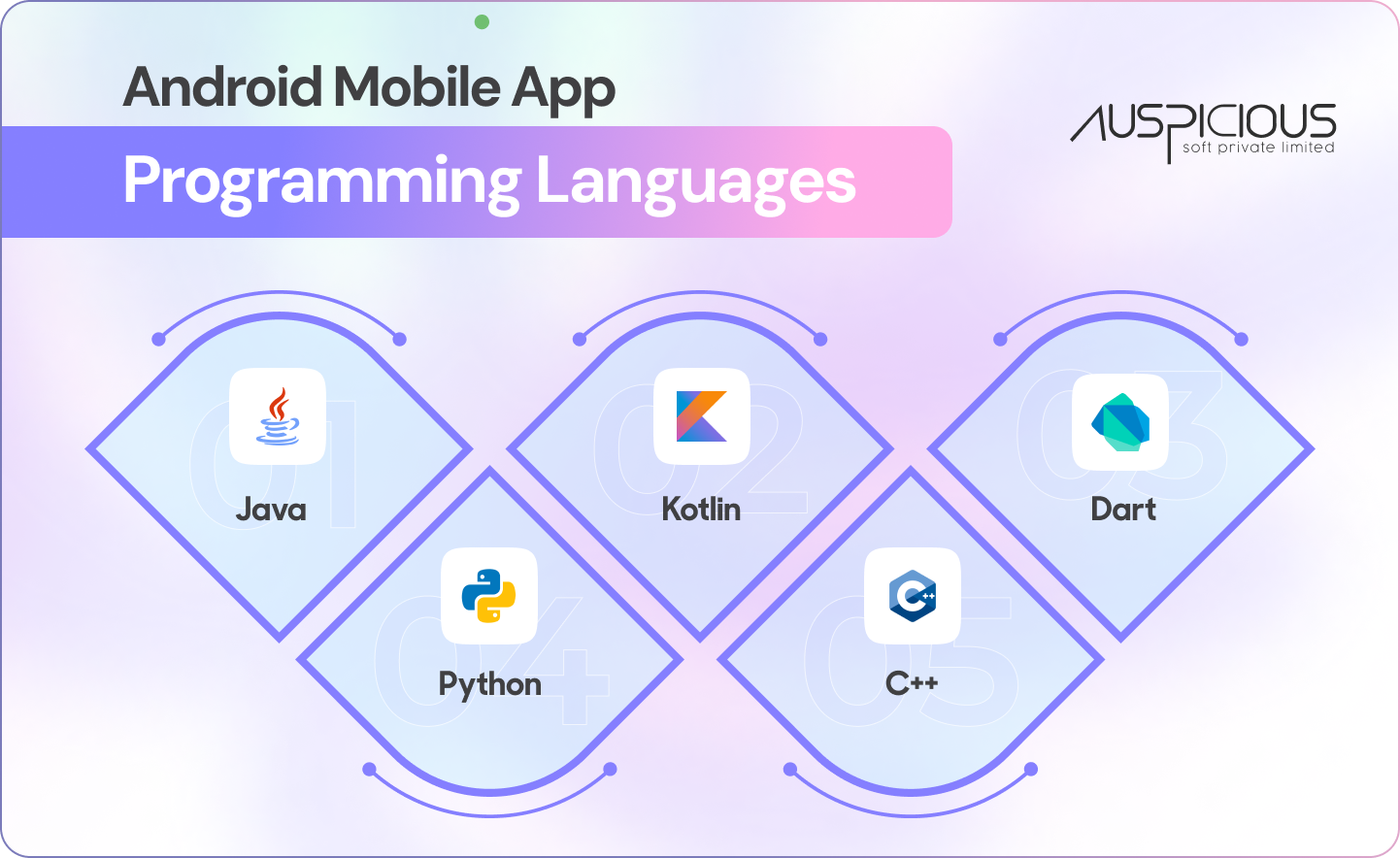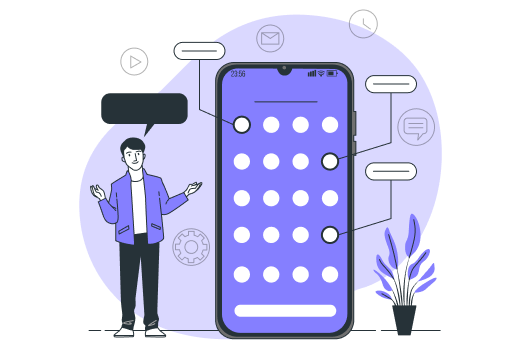Android app programming languages deciphered: trends and tools 2025
With technology changing, businesses and developers are facing a sea of innovations and choices, especially in the domain of Android app development. Since Android is holding the lion’s share of the global mobile operating system market, it has become very crucial to select the right Android app programming languages.
This article discusses the latest trends, tools, and insights for 2025, equipping entrepreneurs and developers with informed choices.
Why Android App Development Matters
The open-source nature, versatility, and extensive device compatibility have catapulted the Android ecosystem to exponentially grow. From games to enterprise solutions, Android mobile applications power nearly all sectors of industries.
As more organizations look toward the Android mobile application development services for creating bespoke applications, remaining updated on programming languages and tools is essential to stay afloat in the competitive market.
For a more in-depth look at the most popular programming languages for Android, check out our blog here.
Core Android App Programming Languages

Java
Overview: Java is one of the core Android app programming languages. It is known for its stability and widespread community support, making it ideal for scalable and robust applications.
Why Choose Java in 2025:
: Extensive libraries and frameworks.
: Backward compatibility with older Android versions.
: High security for enterprise apps.
Kotlin
Overview: Kotlin is supported by Google as the first-choice language for developing Android applications and has gained rapid momentum.
Why Choose Kotlin in 2025:
: Less boilerplate code using concise syntax
: Minimizes runtime crashes through null safety features
: Seamless interoperability with Java
Dart (Flutter)
Overview: Dart is a programming language created by Google that powers its cross-platform app development tool, Flutter.
Why Choose Dart in 2025:
: One codebase for Android and iOS
: Smoothing UI rendering of complex designs
: Increasing adoption in Android mobile application development services
Python
Overview: Python is increasingly becoming a good choice for Android development, especially for AI-based applications.
Why Choose Python in 2025:
: Robust libraries for AI and ML.
: Faster prototyping for startups.
: Easy-to-learn syntax attracts new developers.
C++
Overview: Known for its high-performance capabilities, C++ is mostly used for game development and apps that require heavy computation.
Why Choose C++ in 2025:
: Direct access to hardware resources.
: Versatile for both Android apps and embedded systems.
: Ideal for memory-intensive applications.
Trends in Android App Programming to 2025
AI and Machine Learning
Impact: Use of Python or Java for programming Android apps continues to be preferred especially to integrate algorithms with AI into Android apps
Applications: It includes predictive analytics, chatbots, and individualized user experiences Cross-Platform Development
Dart via Flutter and Kotlin Multiplatform are fundamentally changing the way development of Android Apps is done which would mean easier deployment and coherent user experience
Focus on Security
Impact: Java and Kotlin remain pivotal for creating secure Android applications, especially with the rise of mobile financial services.
Augmented Reality (AR) and Virtual Reality (VR)
Impact: C++ and Java lead the charge in creating immersive AR/VR applications for gaming, education, and training.
Sustainability and Green Development
Impact: Lightweight programming practices using Kotlin or Java help optimize energy consumption in apps, aligning with global sustainability goals.
Tools for Android Mobile Application Development Services
The success of Android apps depends not only on the programming language but also on the tools used for development. Here are the must-haves for 2025:
Android Studio
Features: Ideally, a complete IDE with debugging, testing, and emulation in one go.
Relevance: Optimised for Java and Kotlin.
Flutter SDK
Features: Allowing developers to write cross-platform code in Dart, much faster than ever before.
Relevance: For startups, it is perfect for faster time-to-market.
PyCharm
Features: Python IDE that makes coding easier for AI-driven Android apps.
Relevance: Ideal for machine learning and automation.
Unity
Features: Advanced game development platform that supports C++.
Relevance: Best for AR/VR app creation.
Firebase
Features: Backend-as-a-service for database, analytics, and crash reporting.
Relevance: It enhances the functionality of the app and user engagement.
Diagram 1: Overview of Android App Programming Languages
Here is the above diagram that illustrates the key languages and their respective use cases:
Languages:
Java: Enterprise Apps
Kotlin: General-Purpose Android Apps
Dart: Cross-Platform Apps
Python: AI-Powered Apps
C++: High-Performance Apps
Choosing Your Ideal Android App Programming Language
The best choice of programming language depends on many factors such as project complexity, budget, and team skill. Here’s a decision tree to simplify your choice:
Diagram 2: Decision Tree for Language Selection
Start:
App is cross-platform?
Yes: Dart (Flutter).
No: Continue.
App has AI/ML?
Yes: Python.
No: Continue.
High performance is critical?
– Yes: Use C++.
– No: Use Kotlin or Java.
How to Leverage Android Mobile Application Development Services
Professional Android mobile application development services engage:
Specialized Language Choice: Experts will suggest the most suitable Android app programming language for your business needs.
Efficient Development: Smooth workflows save time and money in the development process.
Latest Technology: Latest tools and frameworks are used.
Future Prospects of Android App Programming Languages
With 2025 approaching, we predict:
Greater Adoption of Kotlin: Kotlin will continue to dominate due to its efficiency and Google’s endorsement.
Increased Popularity of Dart: The rise of Flutter will cement Dart’s position for cross-platform apps.
AI Integration Using Python: Python’s robust libraries will make it a go-to choice for AI-driven applications.
Conclusion
Choosing the right Android app programming language is a crucial step in developing quality mobile applications. By keeping abreast of trends and using professional Android mobile application development services, businesses can future-proof their apps and ensure long-term success. For more information, read our in-depth analysis of the best Android programming languages here.
This article captures the essence of trends and tools for Android app development, providing actionable insights for 2025. For further guidance, connect with experts and ensure your next Android project is a resounding success!
TABLE OF CONTENT
- Android app programming languages deciphered: trends and tools 2025
- Why Android App Development Matters
- Core Android App Programming Languages
- Augmented Reality (AR) and Virtual Reality (VR)
- Sustainability and Green Development
- Tools for Android Mobile Application Development Services
- Choosing Your Ideal Android App Programming Language
- Future Prospects of Android App Programming Languages
- Conclusion
